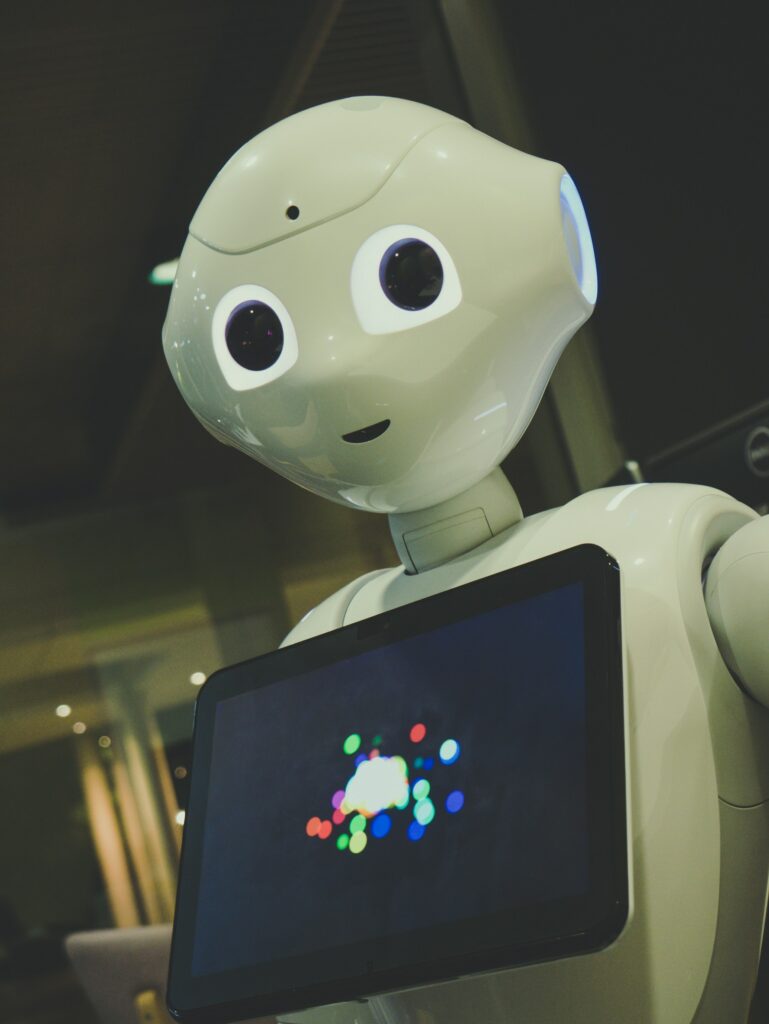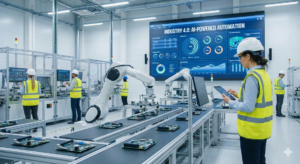The personal assistants that are powered by artificial intelligence are becoming smarter but are they becoming too personal?

The personal assistants that are powered by artificial intelligence are becoming smarter but are they becoming too personal?
The concept of artificial intelligence (AI) has gone a long way from being a science fiction fantasy that was far off in the future to being a reality that we encounter on a daily basis. The emergence of personal assistants that are powered by artificial intelligence is one of the most notable instances. These virtual assistants have slowly developed into very user-friendly tools since they were first introduced. They can now do anything from sending messages and setting reminders to controlling household appliances and organizing calendars. A critical dilemma arises, however, as a result of this fast advancement: as artificial intelligence assistants get more intelligent, are they also becoming more personal?
What Has Happened to Personal Assistants Over Time
In the beginning, artificial intelligence personal assistants were simple and focused on certain tasks. In earlier editions, the only instructions that could be executed were simple ones, such as checking the weather or setting a timer. However, as a result of the development of machine learning and natural language processing, these assistants have progressed into dynamic systems that are able to comprehend the context, anticipate the requirements, and even carry on conversations that are only partially intelligible.
Assistants such as Siri, Alexa, and Google Assistant, amongst others, are capable of doing a great deal more than just responding to questions. The user’s habits are learned, preferences are tracked, and they are fully integrated into the user’s everyday routines. As an instance, your assistant may propose that you leave early for a meeting because it saw unusual traffic. Alternatively, it can remind you of a birthday and even offer gift suggestions based on previous purchases.
Where the Line Is Drawn Between Importance and Convenience
There is no denying the fact that these capabilities are useful; yet, they do create significant issues around the acquisition of data and privacy. It is necessary for an artificial intelligence assistant to gather a substantial amount of information about your actions, preferences, schedule, location, and even the tone of your voice in order for it to be considered really “personal.” In particular, when consumers do not have a complete understanding of the data that is being acquired or how it is being utilized, this kind of access might seem like an invasion of their privacy.
There are a lot of individuals who like it when an assistant makes proactive recommendations for beneficial acts, such as reminding them to drink water or turning out the lights when they leave the house. However, there are much fewer people who are comfortable with the thought that their assistant is effectively “watching” them all the time in order to deliver these ideas. Users are need to give up more control over their personal information as the level of customization of the experience increases.
Do Artificial Intelligence Assistants Go Too Far?
Over the last several years, artificial intelligence assistants have started to include emotional intelligence, with the intention of detecting mood and responding appropriately. Some applications are able to determine whether or not you are experiencing stress by analyzing your speech or typing habits. In response, the app may play soothing music or provide you with mindfulness activities. Not only does this have the potential to be advantageous, but it also introduces a new dimension of personal intrusion, which involves monitoring not just what you say but also how you feel when you say it.
Concerns have been raised about the bounds that these technologies need to adhere to as a result of the fact that some users have experienced assistants making recommendations that are disturbing or remembering items that they do not remember revealing. As AI becomes more adept at anticipating human behavior, there is an increasing possibility that it will not only assist you in making decisions, but will also make an effort to influence those decisions.
Concerning the Importance of Consent and Openness
Artificial intelligence-powered assistants have a number of issues, one of the most significant of which is how they handle user permission and data disclosure. When activating these devices, a significant number of users do not read the complete terms and conditions, and even fewer users comprehend the ramifications of committing to extensive data access rights.
To make these systems more open and accessible to the public is a duty that falls on developers and technology businesses. Users should have control over the data that is gathered, how it is utilized, and how long it is retained, and they should have clear opportunities to exercise this control. Additionally, there should be methods that make it simple to examine and erase personal data, rather than having to go through difficult menus or settings that are concealed within.
An Examination of the Psychological Effects of “Human-Like” Assistants
The psychological effect of dealing with artificial intelligence assistants who resemble human communication is another perspective that should be taken into consideration. Users may start establishing emotional ties to these systems or acquiring a false feeling of friendship as these systems continue to progress in their level of sophistication. It is possible that this may cause some people to develop an unhealthy dependence on digital assistants, while others may start to regard human relationships differently as a result of the impact of digital assistants that are always accessible and always pleasant.
In addition, there is the possibility of “overtrust,” which occurs when consumers have the mistaken belief that the AI assistant is right or impartial, even when it is making choices based on data that is either inadequate or biased. This kind of unquestioning trust may result in bad decision-making, particularly in areas such as medicine, finances, or interpersonal relationships.
With an Eye Towards the Future
The next step in the development of artificial intelligence personal assistants will most certainly entail even more customization, a more profound incorporation into our homes and vehicles, and a more comprehensive comprehension of human requirements. At some point in the future, they may function as full-fledged digital companions, providing recommendations for mental health, recommendations for managing diet, and even recommendations for careers. But the issue that has to be answered is: to what extent are we ready to enable these systems to be intimate?
The most difficult issue will be to strike a balance between practicality and moral obligation. When developing assistants, developers should prioritize the creation of assistants that are useful without being overbearing, intuitive without being manipulative, and personal while still respecting users’ right to privacy.
There is no denying the usefulness of personal assistants driven by artificial intelligence, and they continue to advance in ways that may significantly simplify our lives. It is crucial that we stay conscious of what we are giving up in return for the convenience that they provide, especially as they continue to grow in capabilities and become more tied to our own personal lives. Managing settings and permissions in a way that is knowledgeable, cautious, and proactive may assist ensure that artificial intelligence continues to function as a tool rather than a passive spectator with an excessive amount of power.




